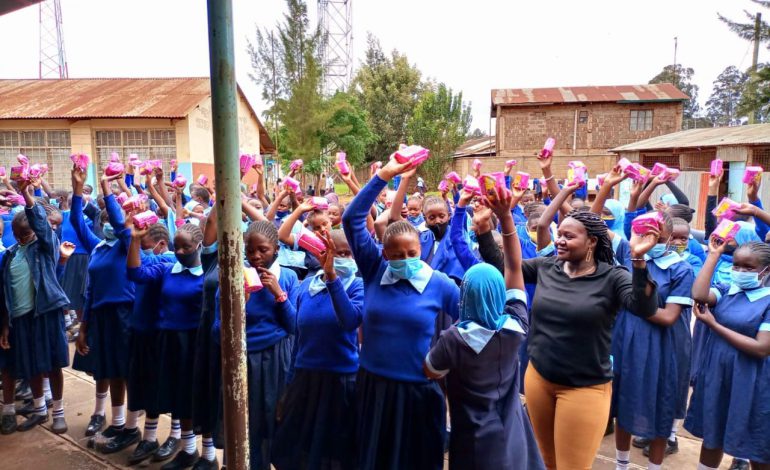Period poverty is a term used to describe the lack of access to sanitary products, such as menstrual pads and tampons, for women and girls. This issue disproportionately affects people living in poverty, particularly in developing countries. In the recent years there has been more awareness on this matter and it is great to see it being eradicated. The funding from well-wishers, organizations and governments at large has helped to attend to this issue.

Individuals are also taking the matter to their own hands by creating initiative groups where they collaboratively help support our young girls and women. This time I shine light on The Zahara Intitiative. The initiative was founded in 2021 by Joy Kinoti, who was then a 22-year-old student at Meru National Polytechnic. The social worker in training began this initiative after discovering the increased period poverty mostly in Kenyan Rural schools. Joy was troubled by how some of the girls could go to the extent of compromising their own safety to afford sanitary pads, which resulted in a rise of teenage pregnancies precisely in her surrounding county of Meru, Kenya. She could not make peace with how girls’ education was at jeopardy due to a natural and controllable cause and noted that it needed intervention. She factored the health risks that came along with this conditions and how some girls could resort to using rags and foreign materials as a subsidy for sanitary towels.
The impacts of period poverty range from social to health factors. There are urinary tract infections caused by introducing non-sterile, foreign objects to act as sanitary pads. Vaginal infections are caused by transactional sex, used to make ends meet so they can afford a decent sanitary towel. Skin irritations are caused by heat due to the incompetency of sanitary towel subsidies; they might have allergic reactions to
such objects. Also, some girls missed school days due to fear of social stigmatization in case of an accidental spill in school due to improper products. The educational disparities disadvantage these girls and they most certainly did not wish it upon themselves.
In February 2024, Joy, through Zahara Initiative, launched the ‘pad bank’ or ‘pad dispenser’ in public schools. As the name suggests, it is a centralized dispersion point placed in those schools where everyone can access quality sanitary towels. It serves as a redeemer of dignity to the less fortunate girls experiencing their menses and also promotes menstrual hygiene. The initiative brings together about 71 volunteers who contribute towards the good cause to enable restocking of these pad banks and their
to launch it. Joy also sources out from other well-wishers and organizations who gladly reach out. They distribute about five packets to each girl, which may last them about five months. It is a constant effort to keep the supply coming to prevent them from running back to rags when their menses become rampant. The pad banks are refilled at least once every month to ensure a constant supply. This is in measure with the school’s term, enabling a smooth flow of learning for all girls. Their goal being to
achieve menstrual equity.
Aside from offering free and quality sanitary towels in public schools, Zahara Initiative works to help educate the community, primarily the girls, on menstruation. Their purpose is to end the ‘taboo’ mentality perceived with most members of the community and learn to embrace this event of life as natural. They also call upon the government to help in implementing policies to educate the community at large and also implement policies to ensure proper funding goes into eradicating period poverty.
Dr. Jacqueline Kisato, a fashion designer who teaches entrepreneurship, also confirmed that period poverty spans even up to higher learning institutions. She became aware of this after she was borrowing a sanitary towel from one of the students at Kenyatta University. She could not believe that there was such a scenario in higher learning institutions, and after she attended to that student, she collaboratively pushed to create eco-friendly bespoke sanitary towels from various biodegradable materials, including banana and seaweed.
It is great to see how this issue is being tackled by a large number of people, ranging from esteemed
professors to the common mwananchi (citizen). It is also a call to everyone, not excluding men, to help
in battling this condition. By collaboratively promoting Dr. Kisato’s eco-friendly sanitary towels and
distributing them like Zahara Initiative, we will solve period poverty while managing the waste that
challenges it. It is a wakeup call to innovators and influential people to use their abilities for the greater
good. Together we can solve period poverty.

